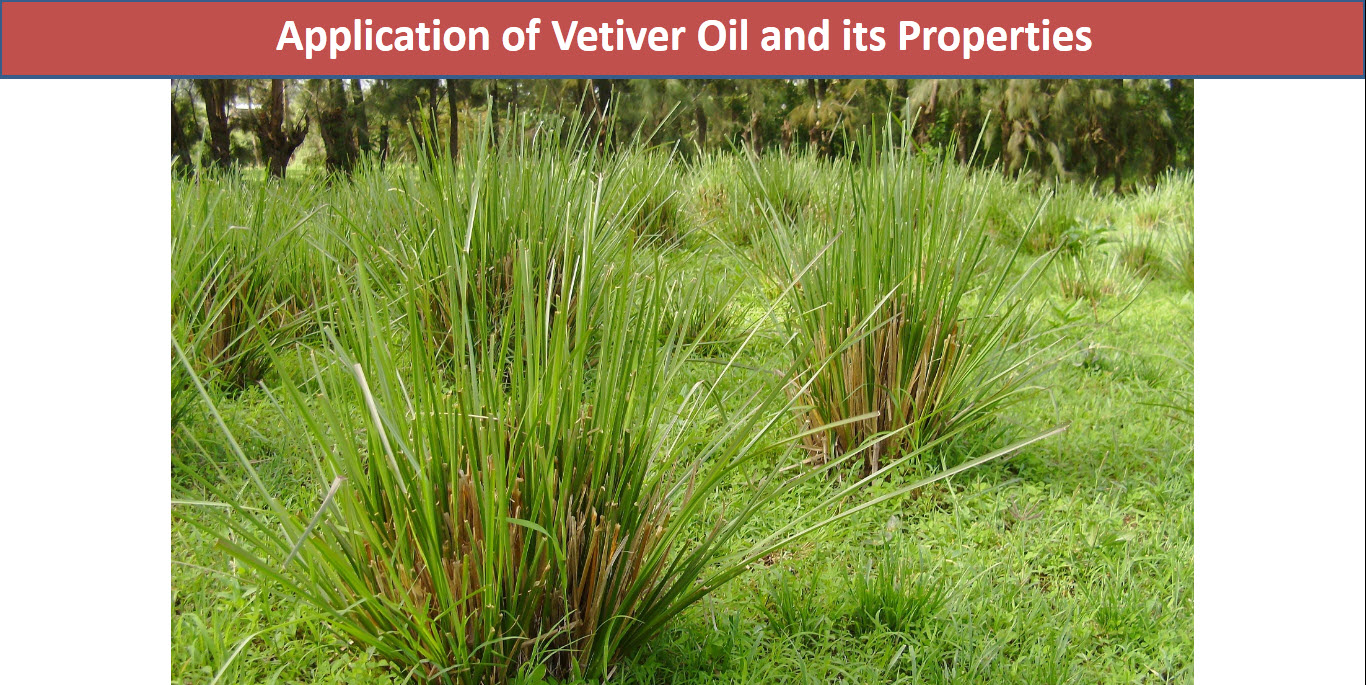Blogs

Application of Vetiver Oil and its Properties
The research on vetiver oil has been conducted on its antibacterial, antifungal, antiviral, antituberculosis, anti-inflammatory, anti-parasitic and anti-septic qualities. These properties have proven to be extremely beneficial in overcoming various infections and disorders. These oils are also known to relieve stress, soothe nervousness and calm the body. It is used for medicinal purposes in different countries across the world.
What is Aromatherapy Application of Vetiver Oil?
Vetiver Oil is a powerful essential oil that has been used in aromatherapy for many years. Its healing and therapeutic properties make it a popular option for soothing the mind and body.
It has a long history in Ayurvedic medicine. Its healing effects are due to its high specific gravity and its ability to rejuvenate the skin. Its anti-microbial and antioxidant properties help keep your skin looking youthful and healthy.
Vetiver oil also contains a compound that has neuroprotective and chelating effects. Its soothing effects can help reduce stress and mental fatigue. It helps your brain function more effectively and may improve your alertness.
Its calming effect on the nervous system may also make it a great choice for treating ADHD. If you are prone to feeling anxious, you can try a massage with Vetiver Oil. You can also use it in your diffuser for an emotional calming experience.
What are Benefits of Antifungal Property of Vetiver Oil?
Vetiver Oil has been found to have a broad range of antifungal properties. It also possesses antioxidant and insecticidal properties. Besides, vetiver has a low level of heavy metals.
The antifungal properties of vetiver oil are attributed to its b-vetivone content. This substance is a component of phenolics, which are responsible for the chelation of toxic metals. This process occurs through the action of glutathione S-transferase, superoxidase dismutase, and catalase.
The presence of b-vetivone and sesquiterpenes in vetiver essential oil is suggestive of its anti-oxidant activity. It has also been shown to have a high antimicrobial activity against Gram-positive bacteria.
It also exhibits a strong free radical scavenging activity. In addition, vetiver essential oil shows powerful antioxidative properties against lipid peroxidation.
The plant has also been studied for its potential as a phytoremediation agent. Phytoremediation cleans up soil and water bodies.
Vetiver Oil is Antituberculosis
Vetiver oil, derived from the roots of the plant, has many uses. It is used for its anti-inflammatory, anti-fungal, and anti-bacterial properties. It is also used for various cosmetic applications. It is believed to have antioxidant properties and can help reduce soil pollution.
Significant researchers examined the effects of vetiver on the aetiology and pathogenesis of tuberculosis. Their findings showed that the extract from vetiver had antimicrobial activity against gram-negative bacteria and that the addition of a substance called vetiverin may have contributed to the antimicrobial action.
The essential oil of vetiver has also shown antioxidant properties. It contains a chemical called khusimol, which is a phenolic compound. It has been compared to tocopherol, a fat-soluble vitamin E.
Vetiver Oil Soothes and calms anxiousness
Vetiver oil is a potent antioxidant that's been shown to be effective in soothing and calming the nervous system. This is especially important if you suffer from a nervous condition. It's also good for reducing anxiety, and it might even boost immunity.
Vetiver has been used for centuries in India and Sri Lanka for its calming effect. It's been used to treat depression, insomnia, and emotional stress. In fact, it's often called the "oil of tranquility." It's also been used in a variety of products for its calming effects.
In the United States, it's sometimes referred to as khus oil. It's a therapeutic grade. While it's not as well-known as other essential oils, vetiver's benefits are worth considering.
It's also been shown to improve brain function during sleep. For example, it can help reduce restlessness and improve breathing during sleep. It's also a good smelling ingredient to use in your home.
The Bottom Line
One of the best insecticides to protect you from tick bites is Vetiver oil. Its strong and unique smell makes it hard for ticks to stay away. In addition, it has several skin benefits, including controlling uneven skin tone and regulating breathing.

